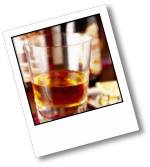“Wine is a mocker, Strong drink is a brawler, And whoever is led astray by it is not wise”
~ Proverbs 20:1
 We live in a time where social drinking is considered acceptable by the worldly, and is even championed by some in the Lord’s church. There has been much said and written about the words used for wine in both the Hebrew and Greek language, but I have read little about the phrase “strong drink” found several times in the Old Testament, and once (with regard to John the Baptist) in the New Testament, in Luke (1:15).
We live in a time where social drinking is considered acceptable by the worldly, and is even championed by some in the Lord’s church. There has been much said and written about the words used for wine in both the Hebrew and Greek language, but I have read little about the phrase “strong drink” found several times in the Old Testament, and once (with regard to John the Baptist) in the New Testament, in Luke (1:15).
The Hebrew word shekar, is found 24 times in the Old Testament (according to Strong’s Concordance), and is translated “strong drink” (22 times), “strong wine” (1 time), and “drunkards” (1 time). The word is defined by Genesius in his Hebrew Dictionary as “strong drink, intoxicating liquor, whether wine or intoxicating liquor like wine made from barley, or distilled from honey or dates.” Strong defines the term as “an intoxicant; i.e. intensely alcoholic liquor.
The root from which the term shekar derives, (shakar), means “to become tipsy; to be filled with drink abundantly; to become drunk” (Strong’s); and it shares it’s root with Hebrew terms shikkerown, the name of a town in Palestine which literally means drunkenness, and shikkarown, translated drunkenness.
The term is used in 1 Samuel 1, when Eli accuses Hannah of being drunk. She answered, “No, my lord, I am a woman of a sorrowful spirit. I have drunk neither wine nor strong drink, but have poured out my soul before the Lord” (vs. 15). She asked Eli not to consider her as a “wicked woman.”
Interestingly, the Psalmist used the word when speaking of his treatment at the hands of his enemies. He wrote, “…I became a byword to them. Those who sit in the gate speak against me, and I am the song of the drunkards” (Psalm 69:11b-12).
Other passages which use the term include Proverbs 31:4-5, which underscores the foolishness of intoxicants, “It is not for kings, O Lemuel, it is not for kings to drink wine; nor for princes strong drink: Lest they drink, and forget the law, and pervert the judgment of any of the afflicted”; and Isaiah 28:7, where the priest and the prophet were condemned for their sin, “But they also have erred through wine, and through strong drink are out of the way; the priest and the prophet have erred through strong drink, they are swallowed up of wine, they are out of the way through strong drink; they err in vision, they stumble in judgment.”
Having read the passages, now consider the facts. The American Council for Drug Education’s fact sheet on alcohol mentions the following (direct quotes):
- Nearly half of all Americans over the age of 12 are consumers of alcohol. Although most drink only occasionally or moderately, there are an estimated 10 to 15 million alcoholics or problem drinkers in the United States, with more than 100,000 deaths each year attributed to alcohol.
- Among the nation’s alcoholics and problem drinkers are as many as 4.5 million adolescents, and adolescents are disproportionately involved in alcohol-related automobile accidents, the leading cause of death among Americans 15 to 24 years old.
- Dealing with drunkenness and with alcohol-related accidents, crime, violence, and disturbances consumes more resources than any other aspect of police operations, while the health consequences of alcohol abuse add enormously to national health care costs.
- Alcohol is the name to given a variety of related compounds; the drinkable form is ethanol, or ethyl alcohol. It is a powerful, addictive, central nervous system depressant produced by the action of yeast cells on carbohydrates in fruits and grains.
- Surveys of adolescent and young adult drinkers indicate that they are particularly likely to drink heavily with the intention of getting drunk – often every time they drink.
- A 12-ounce glass of beer, a 5-ounce glass of wine, and a 1.5-ounce shot of liquor all contain the same amount of alcohol and, therefore, have an equal effect on the drinker. All three forms of alcohol have the same potential for intoxication and addiction.
- In addition to risk of injury or death as a result of accident or violence, alcohol abuse poses a broad range of physiological and psychological dangers.
Additionally, Great Britain’s Medical Council states: “Alcohol taken in any amount may be harmful if the time and situation are inappropriate, for example, when driving. Indeed, the risk of sustaining alcohol-related injuries begins to increase with blood ethanol concentrations as low as 20 mg/100 ml (4.3 mmol/l). It is impossible, therefore, to identify a level of alcohol consumption that can be described as ‘safe’. (emphasis mine, SC).
Reading again the wise man’s words, “…and whoever is led astray by it is not wise”, I wonder at the motivation of those who seek to justify social drinking of “strong drink”, such as the fortified wines and beers and distilled liquors that are characteristically found on the market today. It is common for the worldly minded to seek to rationalize away the sinfulness of their actions. They deceive themselves so as to allow the activities they desire, rather than what God desires for them. Truly, they are “not wise.”




